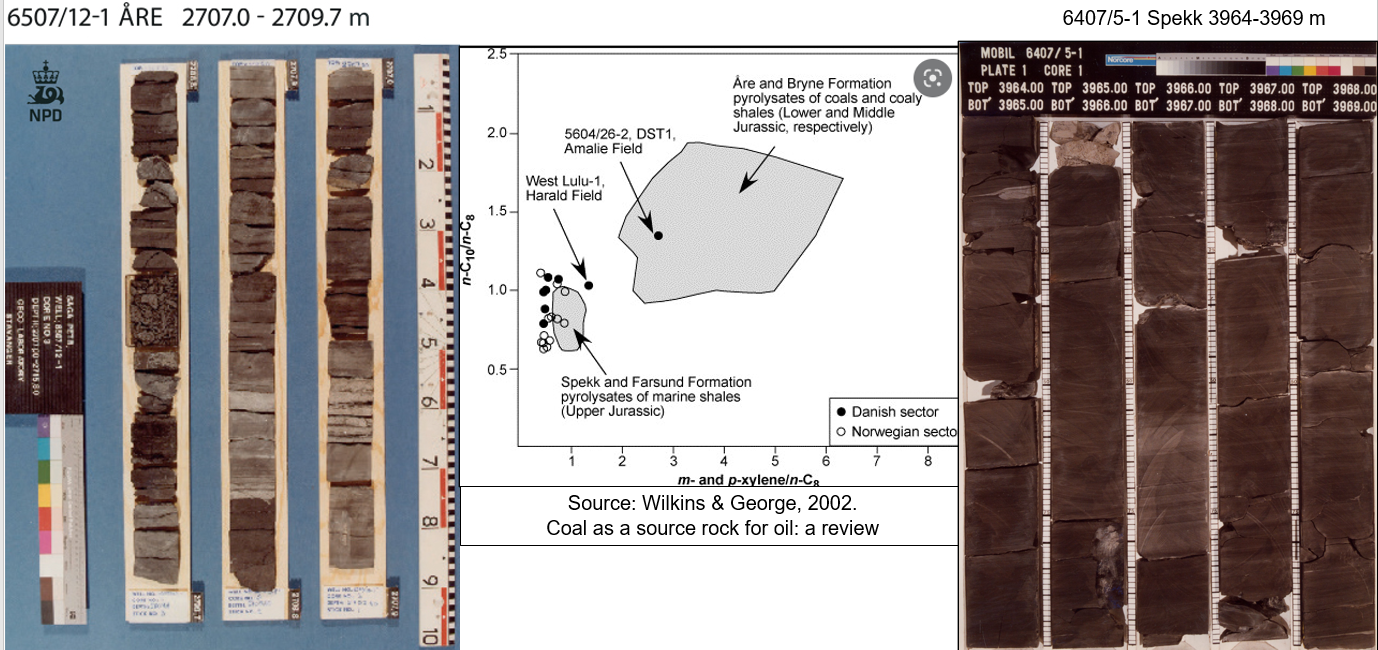Webinar: Traditional and machine learning techniques applied to oil-source correlation in the Norwegian Sea: Åre we able to end the Spekk-ulation?

The petroleum systems network group invites you to a webinar featuring David Gardiner from IGI. He will be presenting on traditional and machine learning techniques applied to oil-source correlation in the Norwegian Sea: Åre we able to end the Spekk-ulation?
| Date | Time | Duration | Register by | Location |
| 1. Dec 2022 | 15:00 | 1 Hour | 1. Dec 2022 | Teams |
Scope
Oil-source correlation traditionally focusses on integrating common isotopic and biomarker characteristics of rock extract and fluid samples in what can be regarded as a “bottom-up” approach. However, in data-rich areas we can begin to utilise these large databases by using a “top-down” approach, utilising advanced statistics and machine learning. Top-down modelling and machine learning are increasingly fashionable tools within relatively data-rich areas of exploration, helping to place information from traditional “bottom-up” modelling into a regional, big picture, spatial context.
Here we utilise a geochemical database of over 30,000 samples across the Norwegian Sea to explore variations in the source rock quality, maturity and depositional environment of the early Jurassic Åre Fm. and late Jurassic Spekk/Melke Fms. Integrating relatively simple machine learning techniques (PCA, Gaussian process regression & cluster analysis), we can begin to differentiate oils into several families based on the molecular and isotopic composition of gasoline and biomarker compounds, related to differential maturity, alteration and source rock(s). It is critical that this exploratory data analysis recognises challenges related to noisy and erroneous data, requiring an iterative approach in practice and an understanding of the robustness, or lack of robustness, of the methods employed.
Short bio:
David graduated with a Masters in Geology from the University of Southampton in 2011, joining IGI Ltd. shortly after as a Geochemist and Basin Modeller. Now working in a senior role (and having become Consultancy Manager in 2022), David has built experience working as a consultant and project manager in many tectonic settings worldwide, with a particular interest in passive margins, igneous-affected sedimentary basins and the application of radiogenic isotopes within petroleum geochemistry.
How a webinar works
You register as usual through the registration button above. Once you are registered you will get an invitation via email to join this webinar.
FORCE uses Teams Video for this webinar, and has proven to work successfully.
We recomment that everyone joining turn off their camera and microphone when joining.
If you have any questions you can use the chat or wait until the end of the talk.
FORCE seminars have previously been fully booked with waiting lists so you are encouraged to sign up as soon as you know you will attend.
Once you have registered, you will receive an outlook invitation with the Teams link. You will receive the link a few days prior to the webinar.
You cannot forward the link to people who is not registered.
Participation fees:
FORCE members: Free
Non-members: NOK 350,-
University/student: Free
Important information:
You can register as a FORCE member and pay "FORCE member" price if you are an employee of a member company.
All FORCE member companies are listed here.
Payment is made online by credit card. Please note that no refunds will be given after you have signed up.
If you for any reason can not attend the workshop, you are welcome to send a representative, just inform Linn Smerud as soon as there are changes.
Updated: 12/2/2022
